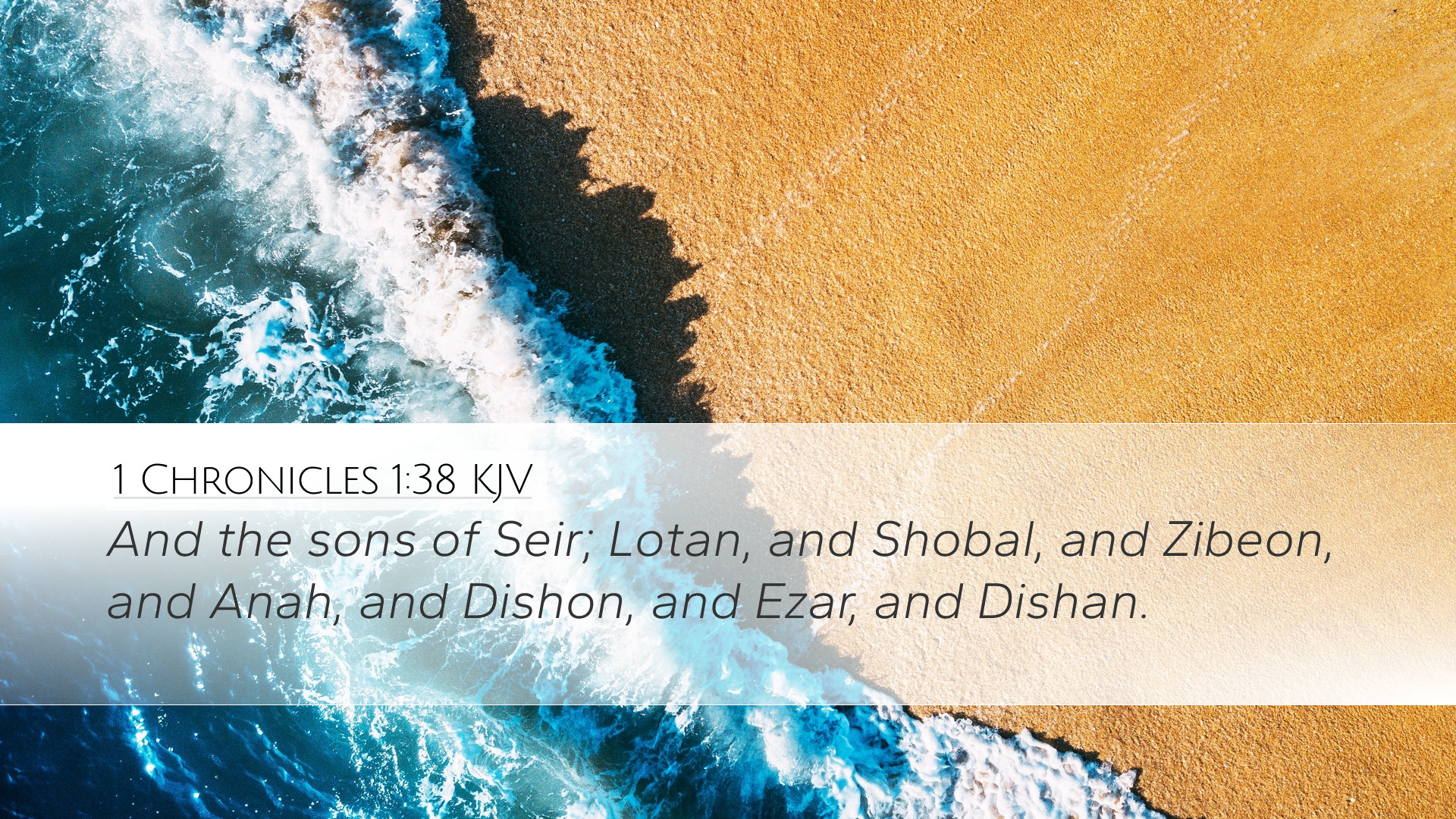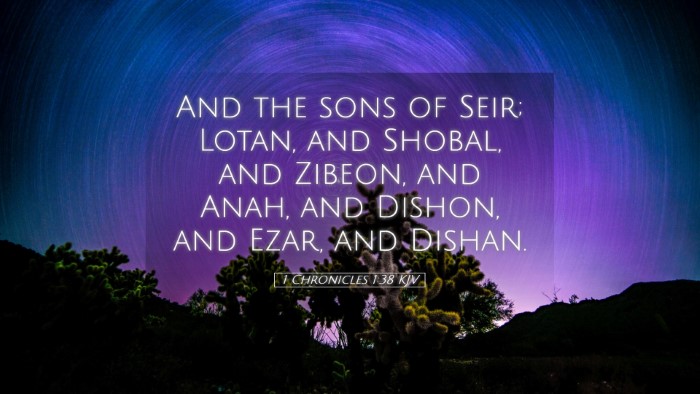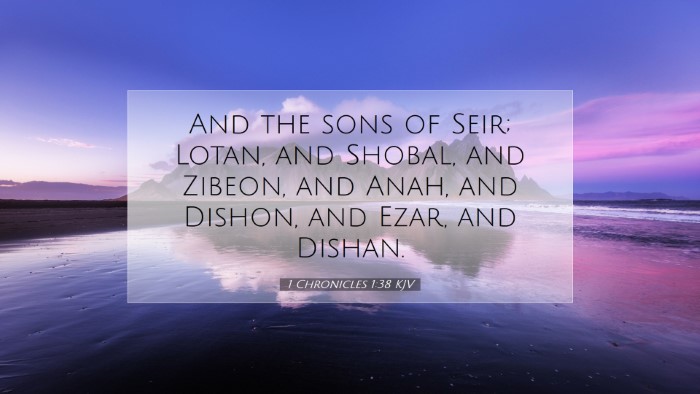Commentary on 1 Chronicles 1:38
Contextual Background: The Book of Chronicles, particularly in its genealogical sections, provides a historical account of the Israelite people. The genealogy here serves as a reminder of God's covenant with Abraham and his descendants, detailing the lineage of those who played significant roles in Israel's history. Chronicles often emphasizes the faithfulness of God through generations.
Verse Text:
“The sons of Seir; Lotan and Shobal, and Zibeon, and Anah, and Dishon, and Ezer, and Dishan.” (1 Chronicles 1:38)
Insights from Matthew Henry:
Matthew Henry notes the importance of genealogies in Scripture, particularly in showing the fulfillment of God's promises. The mention of Seir’s sons emphasizes the fact that even the descendants of a nation that was often in conflict with Israel have a place in the broader narrative of God's sovereign plan. Henry asserts that genealogies were not merely for historical acknowledgment but hold spiritual significance, illustrating the interconnectedness of all humanity under God's providence.
Insights from Albert Barnes:
Albert Barnes provides detailed insights into the individuals listed in this verse. He reflects on Lotan, Shobal, Zibeon, and others as representatives of the Edomite lineage. Barnes emphasizes the importance of understanding these genealogies in the context of their historical and geographical significance. He points out that these names, while obscure today, indicate the tribes that lived in the area of Edom, not far from Israel, highlighting the dynamic and often hostile relationships between these neighboring peoples.
Insights from Adam Clarke:
Adam Clarke approaches the verse by explaining the etymology and potential meanings behind the names of Seir's sons. Clarke suggests that Lotan may be derived from a root meaning "to cover," which could symbolize protection or hiding. His commentary provides a cultural perspective on how the Edomites viewed their history and lineage, indicating that those details were crucial to their identity. The genealogical records affirm their existence in God's creation and their relationship to the Israelites, thus underscoring the theme of chosen ancestry.
Theological Implications:
Collectively, these commentaries lead to several theological reflections:
- God's Sovereignty: The genealogy illustrates God’s governance over history. Despite the various nations and tribes, God has a plan that integrates all peoples into His divine narrative.
- Historical Significance: The mention of these Edomite names serves to remind readers of the historical tensions and interactions between Israel and Edom. Understanding this context enriches the reader's appreciation of Scripture.
- Identity in Lineage: The emphasis on genealogy stresses the importance of identity for individuals and communities. For pastors and students, this underscores how God sees us in the context of His family and faithfulness across generations.
Conclusion:
1 Chronicles 1:38 may seem a simple genealogical entry, yet it is steeped in rich theological and historical meaning. The combination of insights from public domain commentaries by Matthew Henry, Albert Barnes, and Adam Clarke can greatly benefit pastors, students, theologians, and Bible scholars in understanding not just who these families were, but how they fit into the larger story of redemption that runs through Scripture. Such verses remind us that every detail is part of the tapestry of God's sovereign purpose and that there are lessons to be learned from even the less prominent figures in the biblical narrative.


